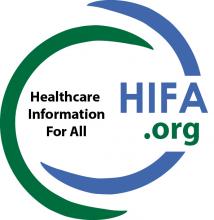
Traditional Birth Attendants
Quote of the month: "It's like forbidding a hospital attendant from applying first aid to victims of a road traffic accident” (Joseph Ana, Nigeria, quoting Shima Gyoh, professor of surgery at Benue State University, Nigeria)
A Comment in The Lancet, “Maternal mortality in Afghanistan: setting achievable targets”, by HIFA member, Stewart Britten, highlighted the growing number of countries which now ban traditional birth attendants (TBAs) from providing assistance to mothers in labour, even if there is no skilled healthworker available. Stewart asked whether “…the WHO prescription for all births to be attended by a skilled birth attendant [had] set the standard too high for Afghanistan, where village community health workers there are not trained to assist at births and can only watch as women die.",
In the future, training TBAs to be Specialist Community Health Workers (SCHWs) could be an opportunity to reduce maternal mortality in underserved areas.
To what extent (if any) are (a) CHWs and (b) Traditional Birth Attendants trained in your country to conduct safe delivery in the home, in situations where transfer to a health facility and/or attendance by a higher-level professional is not possible? What has been the impact of banning TBAs? Join HIFA to discuss further
Childhood malaria
What can be done to improve home management of malaria in children, and timely referral to healthcare facilities? Join HIFA
And the new WHO Director-General is…
“Congratulations to Dr Tedros for this result. We all trust that he will lead the Organization in an efficient, transparent and accountable manner."
With these words, Najeeb Al-Shorbaji (HIFA steering group member, Nigeria) reflected the mood of optimism across the HIFA community which followed the election of the new Director-General of the World Health Organization, Dr Tedros Adhanom Ghebreyesus, an internationally-recognised authority on malaria and ex-Minister of Health for Ethiopia. An Ethiopian by birth, Tedros (as he prefers to be known) is the first African to take office and he does so with a strong mandate from low- and middle-income countries.
In his vision for the future of the WHO, Tedros stresses the importance of “working together at all levels – from Geneva to regional offices and national capitals to local communities.” This is positive news for HIFA because achieving Tedros’ vision for the WHO will depend to a significant extent on achieving the HIFA vision: “Every person and every health worker will have access to the healthcare information they need to protect their own health and the health of others”. We look forward to establishing a constructive relationship with Tedros in the years to come.
How can we work more effectively with Dr Tedros and WHO to increase political and financial commitment to improve the availability and use of reliable healthcare information in LMICs? Join HIFA
Access to information on medicines
In a review of her ten years in office as Director-General of the WHO, Dr Margaret Chan noted that,
“WHO has struggled to improve access to medicines throughout its nearly 70-year history, and rightly so. Good health is impossible without access to pharmaceutical products…Lack of access to medicines is one inequality that can be measured by a starkly visible yardstick: numbers of preventable deaths”
Access to medicines is a fundamental human right. But as HIFA members are aware, there is another, equally fundamental side to the crisis: access to information on medicines. Indeed, access to medicines without information on how to use them can do more harm than good. Coinciding with the publication of Dr Chan’s review, HIFA members were very concerned to hear of the situation in Haiti, where pharmacists are considered a dying breed, and untrained street vendors illegally sell medicines directly to citizens from buckets. There is virtually no oversight by the government, the medicines are usually counterfeit or expired and, in most cases, vendors will often provide incorrect advice and information about usage. As the Haitian ministry’s pharmacy director, Flaurine Joseph put it: “They are like time bombs, and we have almost no way to stop them.”
This inappropriate and excessive use of - and access to - medicines is helping to drive antimicrobial resistance, with potential for tens of millions of deaths annually. Unfortunately, the international community has failed to take urgent action to address this issue. In fact, as we have heard this month on HIFA, the situation has worsened in recent years. The leading English-language prescribing tool, British National Formulary, used to be available free online and is now behind a paywall. The WHO Model Formulary has not been updated since 2008 and the International Network for Rational Use of Drugs has virtually ceased activity due to lack of funding.
The HIFA Project on Information for Prescribers and Users of Medicines was set up in response to needs expressed by HIFA members. Our shared vision is 'A world where every prescriber and user of medicines will have access to independent, reliable, understandable information on the full range of commonly prescribed medicines – and will know where to find it'.
We are particularly interested to collaborate with others to take this forward. This is an issue that we cannot tackle alone. It is an issue that can no longer be ignored.
What can we do to accelerate progress on this issue? Join HIFA
This HIFA Blog is written by Martin Carroll

